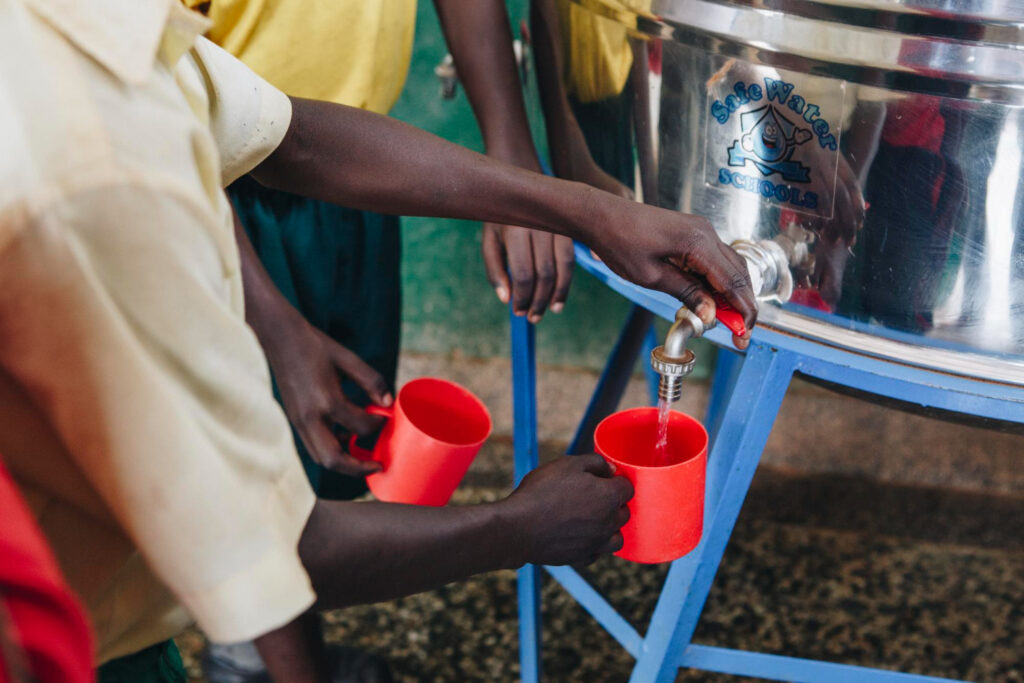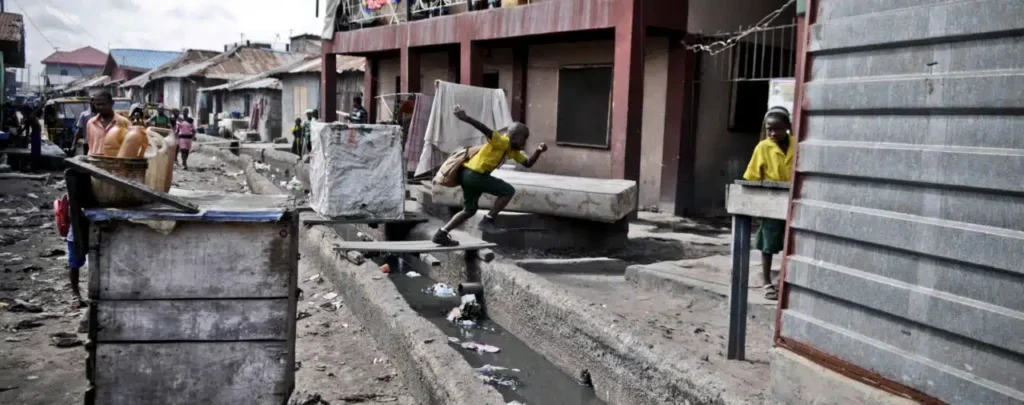
Scientific research into water sanitation applied research into the management of public water and sanitation services
Research activities supported by the Water for All Chair
The Chair conducts applied research based on practical case studies relating to the management issues faced by urban wastewater stakeholders. Led by AgroParisTech within the UMR Gestion de l’Eau Acteurs Usages, these actions are guided by the advice of a scientific council and validated by the Chair’s strategic orientation council.
See the members of the Chair’s Scientific Advisory Board
Eugene Appiah-Effah, RWESCK / KNUST; Esi Awuah, RWESCK / KNUST; Pierre Bauby, Observatoire de l’action publique de la Fondation Jean-Jaurès;Laurent Béduneau-Wang, Africa Business School – University Mohamed VI Polytechnique (ABS-UM6P); Richard Buamah, RWESCK/KNUST; Marine Colon, AgroParisTech, UMR G-EAU, MRM; Clément Frenoux, AFD; Christoph Lüthi, Sandec / EAWAG; Pierre-Louis Mayaux, CIRAD, UMR G-EAU, Thierry Rieu, UMR G-EAU; Klaas Schwartz, IHE Delft; Guillaume Stahl, Suez
The Scientific Advisory Board is chaired by Dr. Christoph Lüthi, Group Leader at Eawag.


Overcoming institutional and organisational obstacles to the development of urban sanitation
The Chair’s Scientific Rendez-Vous

How is climate change adaptation transforming water and sanitation services, governance, management and design? A focus on African cities
On the theme of adapting water and sanitation services to climate change in African cities, the event will bring together researchers, experts and managers to explore the necessary changes in governance, management and service design.
More
Scientific workshops organized by the ‘Water for All’ Chair bring together urban water utilities managers, experts and scholars to think about what would be the right path for further research and actions to stay on track to reach the SDGs. The 4th scientific workshop was held in 2021 and explored how to overcome institutional and organizational barriers to sanitation (Colon, Rieu, 2022).
The need to devote the 5th edition to the broader challenge of provision of water and sanitation services in the light of accelerating climate change seems quite obvious. For the first time, the seminar will be held in Africa, to foster participation of water stakeholders based in this continent and case studies from African studies.
The Scientific Committee invites participants to submit short papers on innovative work exploring the theme of the workshop and to open discussions. Please download the call for papers at the bottom of this page. We welcome data driven research and pluridisciplinary approaches. The deadline to submit short papers and draft posters is reported to December 10, 2023!
The following (but not exclusive) questions may be addressed:
- What do we know about the impact of climate change at the local scale?
- How to adapt existing urban water systems?
- How to adapt water utilities management and water sector governance?

Overcoming Institutional and Organizational Barriers to Sanitation
Sanitation comprises a chain of activities ranging from private hygiene practices to waste collection, treatment and disposal, via a networked or non-networked system.
More
Sanitation remains a great challenge of our time, especially in fast-growing cities of Africa and Asia.According to the UN, “in 2015, 29 per cent of the global population lacked safely managed drinking water supplies, and 61 per cent were without safely managed sanitation services. » A lack of sanitation dramatically impairs public health, the environment, and development. Sanitation includes a chain of activities from private hygiene practices, to collection, treatment and disposal of wastes, either through a grid or non-grid system. The UNs have for the first time set a specific target on sanitation with the 6th sustainable development goal. According to goal 6.2, all countries should “by 2030, achieve access to adequate and equitable sanitation and hygiene for all and end open defecation, paying special attention to the needs of women and girls and those in vulnerable situations ».Sanitation is a particularly complex topic, since it involves a large number of actors, a diversity of technologies, expands in public and private spaces, and relies on individual / collective behaviours based on an intimate practice that is taboo and little flexible.
The 3rd scientific workshop held in 2016 organised by the AgroParisTech – SUEZ Chair concluded that barriers to sanitation are first of all institutional and organisational. This new concern regarding sanitation is shared by a number of actors involved, from either the research or operational realm. Institutions relate to both rules (legal rules, rights, norms, standards but also with a sociological stance, representations, customs, traditions, beliefs) and entities involved in the sector from macro (rules designers), meso (rules translators and regulation) and micro (operational) levels. Organisation relates to ways of providing the service.
The 4th scientific workshop will bring into light recent research and operational initiatives that may help to overcome these institutional and organisational barriers. How to build sanitation as a general interest service? How to overcome coordination issues due to multiplicity of technologies? How do researchers analyse institutional change? How do actors deal with institutional rules constraints? The event will provide another opportunity to develop links between managers, researchers and students engaged with sanitation issues.
4th Scientific meeting – 6 and 7 May 2021 in partnership with AFD, Fundation SUEZ and SUEZ Group
organized by the scientific committee: Pierre BAUBY (Fondation Jean Jaurès), Dr Sarah BOTTON (AFD), Dr Marine COLON (AgroParisTech /
UMR G-EAU / MRM), Jean Antoine FABY (AgroParisTech), Dr Lætitia GUERIN (Inrae/UMR G-EAU /
MRM), Dr Xavier LITRICO (SUEZ), Dr Pierre-Louis MAYAUX (CIRAD/UMR G-EAU), Prof Claude MENARD
(Centre d’Economie de la Sorbonne), Thierry RIEU (AgroParisTech / UMR G-EAU), Dr Héloïse VALETTE
(Université Jean Jaurès, Toulouse), Dr Marie-Hélène ZERAH (IRD)
Following the 4th Scientific meeting, you will find by clicking on the link below the 7 posters presented on the 6th May afternoon

Sanitation and its challenges
Among networked public services, sanitation has specific organizational and management methods that tend to make it the poor relation of public infrastructure development policies.
More
Among the networked public services, sanitation presents particular organisation and management modalities that tend to make it the poor relation of public policies for infrastructure development.
The cumulative delays observed in the supply of services to the populations of emerging and developing countries confirm this. To discuss this issue, the ParisTech Chair “SUEZ – Water for All” organised, with the support of the French Development Agency and AgroParisTech, its 3rd Scientific Rendez-Vous on : “Sanitation and its challenges”. As in previous editions, the seminar is intended to be a place for exchanges between experts, institutions, operational and scientific experts from public drinking water supply and sanitation services, but also intends to be open to all administrators, researchers and students concerned by public services.

Management and governance of major urban water and sanitation utilities
Few cities in developing or emerging countries benefit from a public drinking water service that is truly accessible to all and of high quality, and much less so in the case of wastewater services.
More
Few cities in developing or emerging countries have a public drinking water service that is truly accessible to all and of good quality, and much less so for the sanitation service.
Numerous studies have been conducted by various research centres and development-related institutions to understand the causes and identify the keys to success. Yet, paradoxically, the operational world and the research world in these fields live largely separate: service managers and their public guardians are not familiar with this research, and very often researchers do not know the managers who have achieved exemplary transformations. Moreover, research on these subjects is often focused on performance indicators: yet they provide little information on the conditions for success; in these long-stepped processes, they are the result of a past trajectory that does not necessarily reflect the present situation. Other fields of research must then be called upon to understand: Common goods, Socio-economics, Urban planning …
The originality of this scientific meeting lies in the confrontation of these worlds: the operational world and the world of research, itself open to these various disciplines.

Innovative Approaches to Water Utility Performance
On the theme of adapting water and sanitation services to climate change in African cities, the event will bring together researchers, experts and managers to explore the necessary changes in governance, management and service design.
More
The round tables of this first scientific meeting brought together some twenty internationally renowned speakers.
The researchers were able to compare their work with the experiences of managers who have left their mark on the transformation of major urban water and sanitation services. Among them:
Ek Sonn Chan, who transformed the Phnom Penh Water Authority,
Mamadou Dia, General Manager of the Sénégalaise des Eaux and former President of the African Water Union,
Harouna Ouibiga, Director General of ONEA of Burkina Faso,
Thierry Dezenclos, Director of Operations at Société des Eaux et de l’Assainissement d’Alger.
They discussed three main themes:
The performance of water services: a multi-dimensional concept
Innovating in the evaluation of the performance of water and sanitation services
Non-governmental stakeholders: what support for the transformation of water and sanitation services?
